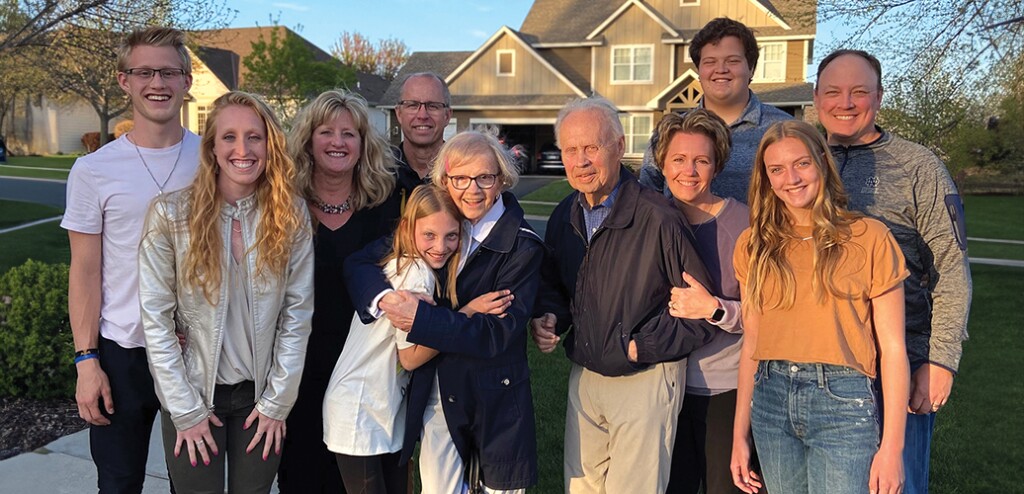Are you looking for ways to give back in your retirement? Donating your retirement assets to charity can be a fulfilling way to help you reach your philanthropic goals, as well as build a legacy for you and your family.
You can donate proceeds from certain retirement accounts, while saving on taxes, with a couple steps. That means more of your retirement savings can go toward the causes you care about. But the donation process itself can look different depending on if you want to make donations while living or after your death. Here's what you should know.
How to donate retirement assets to charity while living
When you've retired and taken a distribution from one of your retirement accounts, you're free to spend it as you like. In theory, you could donate what you've drawn out of your 401(k) to charity and call it a day. But there are more financially advantageous ways to go about sharing your hard-earned money with the causes you care about.
Use your IRA to make a qualified charitable distribution
One way to use retirement assets for charitable causes, if you're at least age 70½, is by making a
- Traditional IRA
- Inherited IRA
- Inactive SEP IRA
- Inactive SIMPLE IRA
Also known as an IRA charitable rollover, this method makes it possible for your charitable contribution to be made without taxation, which means the cause you care about gets more of your money.
The process is simple: The custodian of your retirement account sends the check directly to the charity—or they can send you the check, as long as it is made payable to the charity, and then you can deliver the check yourself. Because of its direct-transfer nature, this donation won't count as taxable income.
If you have a 401(k), 403(b) or another kind of retirement account, don't worry—you still have options for donating wisely. All you have to do is roll those accounts into an eligible IRA before donating them.
How to donate your 401(k) and other retirement assets with RMDs
It's worth noting that some retirement accounts require you to start making
- SEP, SIMPLE and traditional IRAs
- 401(k) plans, including Roth 401(k) plans
- 403(b) plans
- 457(b) plans
- Profit-sharing plans
- Other defined-contribution plans (like employee stock purchasing)
RMDs typically count as taxable income, but that may not be the case if you use QCDs for those distributions. When it comes time to manage your RMDs, it may be an option for you to consider rolling money from other kinds of retirement accounts into a QCD-eligible IRA, if possible.
Note that you'll have to make any QCDs by December 31 of the respective tax year for them to count toward your annual RMD.
Finding QCD-eligible charities
Only select charities qualify for a QCD. To find out if a charity you want to support qualifies, you can use the
While the following entities may be involved in charitable giving, they don't qualify for a QCD:
- Private foundations. Even though private foundations often receive some form of public funding, they usually aren't primarily funded by one private individual or a small group, such as a family.
Donor-advised funds . This vehicle can help manage donations on your behalf to charitable organizations.
- Supporting organizations. While supporting organizations support public charities, they don't count as IRS-recognized entities.
Weighing the pros & cons of QCDs
As helpful as QCDs can be in regard to tax savings, they won't be the right fit for every individual. These are some advantages and disadvantages of QCDs worth keeping in mind.
Pros of QCDs
- Tax benefits. The main advantages of QCDs are that they can help lower income taxes. Not only do these donations not count as taxable income, but they can help lower your adjusted gross income, which can offset other taxes you need to pay, like taxes on Social Security income.
- Philanthropic goals. When you make a donation with a QCD and avoid paying income tax on distributions, you can ensure more of your money goes to a cause that is important to you. It can feel really good to watch more of your money make a difference.
Cons of QCDs
- Age limits. Because you have to be at least age 70½ to make a QCD, some retirees may find this option isn't available to them.
- Contribution limits. The maximum QCD you can make is $108,000 total per year, which can limit how much you can save on taxes if you want to make a larger donation.
How to donate retirement assets to charity after death
Whether you have a traditional IRA or another type of qualified retirement account, if you want to donate the retirement assets after your death, you can choose to
Those who are married or in a domestic partnership may need to have their spouse or partner consent to making the charity a beneficiary (depending on the state you live in), or else they risk having the charity disqualified from receiving that donation after their passing. When you designate a charity as a beneficiary of your retirement account, you can choose to leave the full account to them or just a percentage of it. Your beneficiaries won't have to pay income tax on the funds that are given to the charity.
You also have the option to bequest a charitable donation in your will. That way, the assets will be removed from your estate and given to the designated charity. It's also possible to name a charity as a contingent beneficiary in your will. If the person or entity you initially designated cannot receive the money for whatever reason, it can go to a charity of your choosing instead.
Having your plans clearly laid out in a will can help ensure that your financial and charitable goals are accomplished.
The takeaway
Whether you want to use your retirement savings to support a cause close to your heart now or after you pass away, you have options for how to go about it. Planning ahead can help the donation go as smoothly as possible and, under the right circumstances, help you, your estate or your beneficiaries avoid paying unnecessary taxes.
How and when you build your legacy is up to you, and you don't have to navigate the planning process alone. Connect with a
That way, you can focus on enjoying your retirement knowing your money is helping make a difference.







